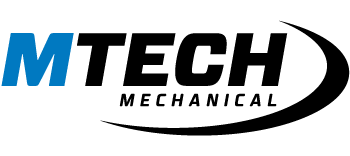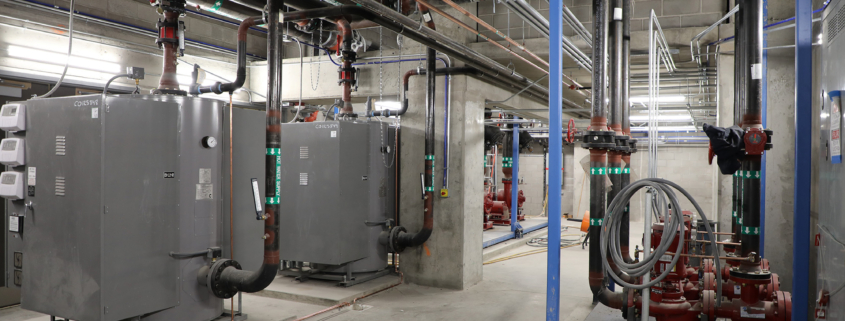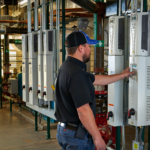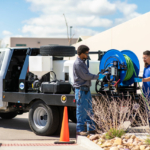How a Mechanical Contractor Can Help Buildings Achieve Energize Denver Compliance
By Dan Walsh, Director of Energy Services at MTech Mechanical
Published in July 2024 — Property Management Quarterly — Page 19
In recent years, Denver has emerged as a national leader in sustainable initiatives. One area of specific focus for Denver has been the improvement of existing buildings’ energy performance. At the forefront of this movement is the Energize Denver Ordinance (Energize Denver). Energize Denver is a comprehensive set of regulations aimed at reducing energy consumption and carbon emissions in all buildings which passed city council in 2021. For mechanical contractors, Energize Denver represents both a challenge and an opportunity to innovate and thrive in an evolving market landscape.
The first step in understanding how to comply with Energize Denver is to know what a building’s energy use intensity (EUI) is and what the targets are for 2025, 2027, and 2030. Building owners with properties over 25,000 square feet in Denver need to track their energy usage in ENERGY STAR Portfolio Manager. Mechanical contractors are now being asked to replace outdated mechanical systems with newer more efficient systems.
Mechanical contractors cannot stress enough the importance of addressing deferred maintenance in buildings. Often a building owner has a certain amount of deferred maintenance that adds up over the life of a facility. In the past, mechanical contractors could not make equipment replacements cash flow in the opinion of an owner, and aesthetic upgrades can be less costly and more appealing to tenants. Deferred maintenance can include an original boiler that was installed in the 1960s and continues to operate correctly. While the boiler heats the building, the efficiency at which it heats, and the gas consumed drives up the EUI score. The building owner understands the boiler is past its useful life and perhaps performed a Level II Energy Audit that recommends replacing the boiler. As a mechanical partner, we strive to show the costs of replacing the conventional boiler with a high efficiency condensing boiler can make financial sense. Deferred maintenance items like these can be some of the largest positive improvements in building energy performance available to our clients. There is an unprecedented amount of funding available in the marketplace to address mechanical systems that are past the end of life and it’s an opportune time to take advantage of funding sources before they expire.
Another example of energy-efficient technology is heat pumps. Heat pumps utilize electricity to offer a highly efficient heating and cooling solution, utilizing ambient air, water, or ground water to provide thermal comfort. A dual-fuel heat pump utilizes natural gas as a backup for the units in Colorado’s cold climate and reduce natural gas usage. The savings on the gas usage is based upon the fact that almost all heat pumps lose electrical efficiency below 20 degrees, and utilizing a sequence of operations that enables gas heating below 20 degrees ensures continuous comfort for the occupants. The impact on a facilities EUI score and the potential for fines make heat pumps an attractive option to building owners. However, owners need to understand which heat pumps qualify for rebates and the increased electrical service required to operate a heat pump solution.
One of the key strategies to address Energize Denver is to build a “Capital Stack” through rebates and incentives. Mechanical Contractors adept in these programs will help to educate clients as to which incentives are available to them and play a pivotal role in helping building owners access these funding sources, such as rebates from Xcel Energy. These rebates can significantly assist in offsetting upfront costs of implementing energy-efficient technologies, making it more financially feasible for building owners to invest in upgrades.
Another example of a funding source is the Inflation Reduction Act (IRA), which aims to mitigate the financial impact of moving away from mechanical equipment that uses fossil fuels. The IRA promotes energy efficiency and renewable energy adoption, through tax credits, and the 179d tax deduction available to commercial and non-profit building owners for energy conservation measures.
Energize Denver and the State of Colorado 2021 Energy Legislation leverages various funding mechanisms, such as the Colorado Green Fund and Commercial Property Assessed Clean Energy (CPACE) financing, to facilitate energy upgrades in buildings. These financing options provide building owners with flexible repayment terms and attractive interest rates, helping to incentivize investment in energy efficient technologies and reduced utility bills.
Denver’s Energy Ordinance presents a multifaceted landscape for mechanical contractors, addressing deferred maintenance, encompassing funding opportunities, technology innovation, and sustainability objectives. By embracing the principles of Energize Denver and leveraging a building’s mechanical contractor’s knowledge, a building can contribute to a more energy-efficient future while driving economic growth and environmental stewardship in our communities.




